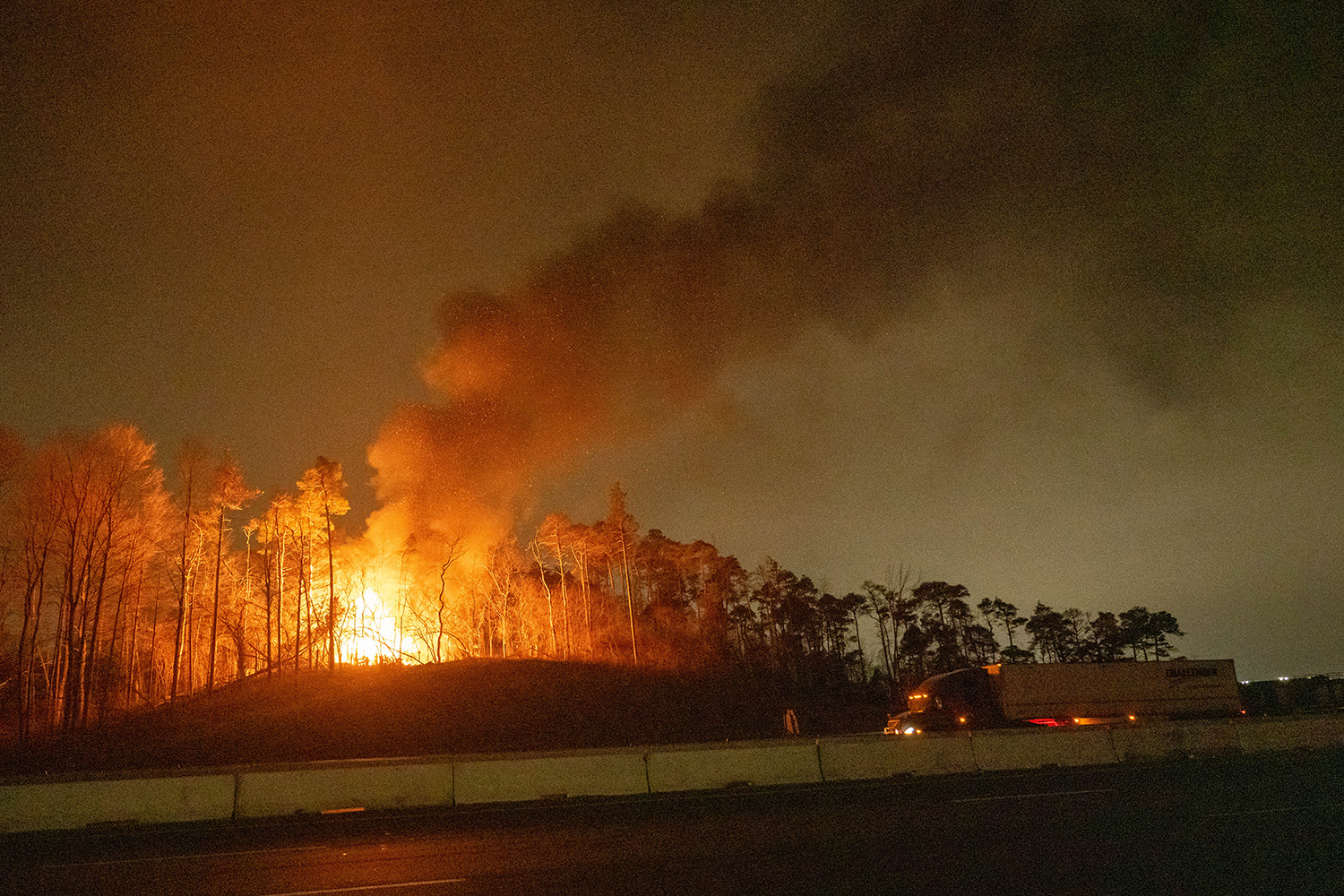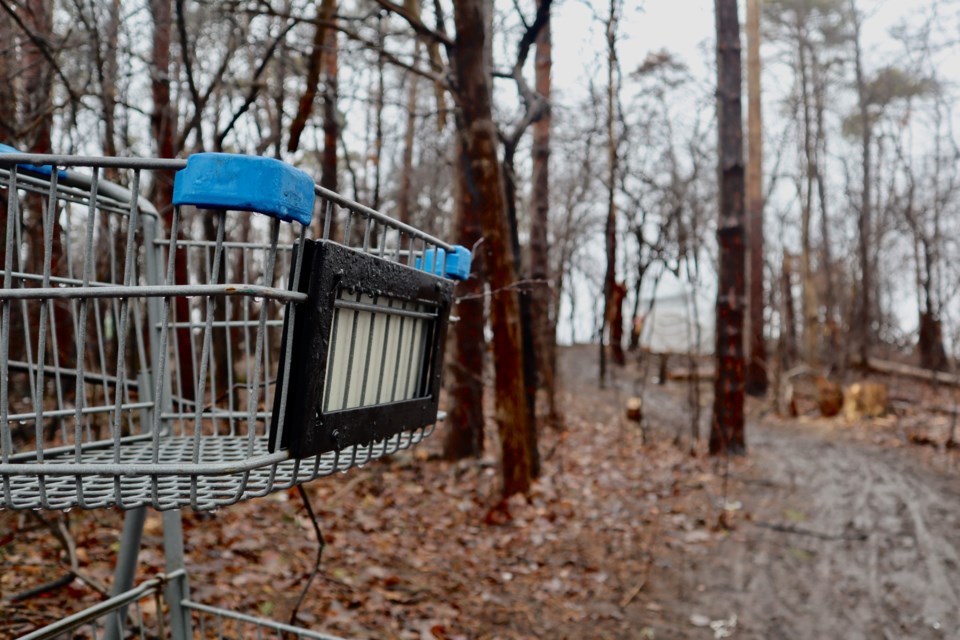A fire that broke out in an encampment near the Franklin Boulevard exit of Highway 401 on Jan. 11, shutting down the highway for several hours over safety concerns, could have had deadly consequences warns a local fire official.
The evening fire started adjacent to the the 401 near Struck Court, closing the highway for over five hours and destroying an encampment set up in a heavily treed lot adjacent to the eastbound lanes.
While cleaning up the site the next morning, the Cambridge Fire Department found over 60 propane tanks stored near the charred ruins, each having the potential to explode.
“Each one of those canisters could act like a missile,” said fire prevention officer Capt. John Percy. “If one of these were to explode and land on the highway, it would be a tragic day for sure.”
Percy says the safety concern is higher in the winter months since these encampments are using the tanks for heating inside tents, creating the potential for fire or explosion.
But fire prevention officers have their hands tied when it comes to encampments, Percy added.
Since these are not permanent structures there are no fire code regulations or laws that would prevent the storage of over 60 explosive containers.
In a commercial setting, there are certain regulations that have to be followed when storing a large quantity of compressed cylinders like propane tanks or other explosive compressed gasses. At gas stations and factories they have to be elevated off the floor and bound in a cage or with chains to prevent falling.
The employer or company can face large fines if they are found to have improper storage creating unsafe conditions. The same can be said for landlords who don’t ensure their rentals have working fire alarms.
“Since you cannot put a fire alarm up in a tent or in an encampment, there is not much we can do until something happens,” Percy said. “In these camps there are open flames and often close to these containers; that is not a safe idea.”
If one of these canisters were heated to the point it exceeded the pressure allowed by the release valve, it would create conditions favourable to explode. This could cause a chain reaction, shooting the canisters into the air with the potential they could land on cars on the highway, or on nearby homes, not to mention the devastating impact it would have on those in the camp.
It would be like a bomb went off, said Percy. Sixty full propane tanks would add up to over 1,000 litres of compressed propane and if it exploded, it would have been "unlike anything seen in the city."
“One of our main concerns is the people in these camps and the fact that they are living in safe conditions and creating a safe environment for their surroundings,” added Percy.

The fire happened on city-owned property that contains a right of way owned the Ministry of Transportation (MTO).
When asked if it was concerned about the storage of propane tanks on land next to the provincially controlled highway, the MTO did not respond, instead saying in an email that it works closely with municipal partners and police during highway closures and will continue to work to ensure driver safety on their highways.
Pam Wolf is a regional councillor for Cambridge and thinks the only solution is more affordable housing and community engagement to uplift people out of these camps and into a more stable housing environment.
“Issues like these should not even be a thing,” said Wolf. “There shouldn’t be camps in the first place and we need to try and build and create housing, housing that can be realistically obtained by the individual.”
Wolf points out that many people in these camps are on social programs like ODSP and Ontario Works. People on these programs only have a few hundred dollars to spend on a housing allowance, but as the cost of housing has gone up, the allowance has stayed the same.
“Where can you find housing for $350 or $500 a month,” asked Wolf. “How can we expect these people to move out of camps if they have nowhere to go.”
The regional councillor calls on the province to give more funding to the municipalities so they can tackle this situation head on, instead of only applying band-aid solutions.
Wolf suggests that modular homes be built in parking lots owned by the city or region to provide housing for those who need it most.
“150 Main would be a perfect location. They have an encampment there now and they could access services whenever they need them and have workers check on them if need be,” added Wolf.
Percy and Wolf both agree; people should not be sleeping in tents and should have the right to be in a shelter that is safe and warm.
“At the end of the day these are people, they are living in conditions that they are just trying to survive in, but their safety should not come second to that,” said Wolf.
